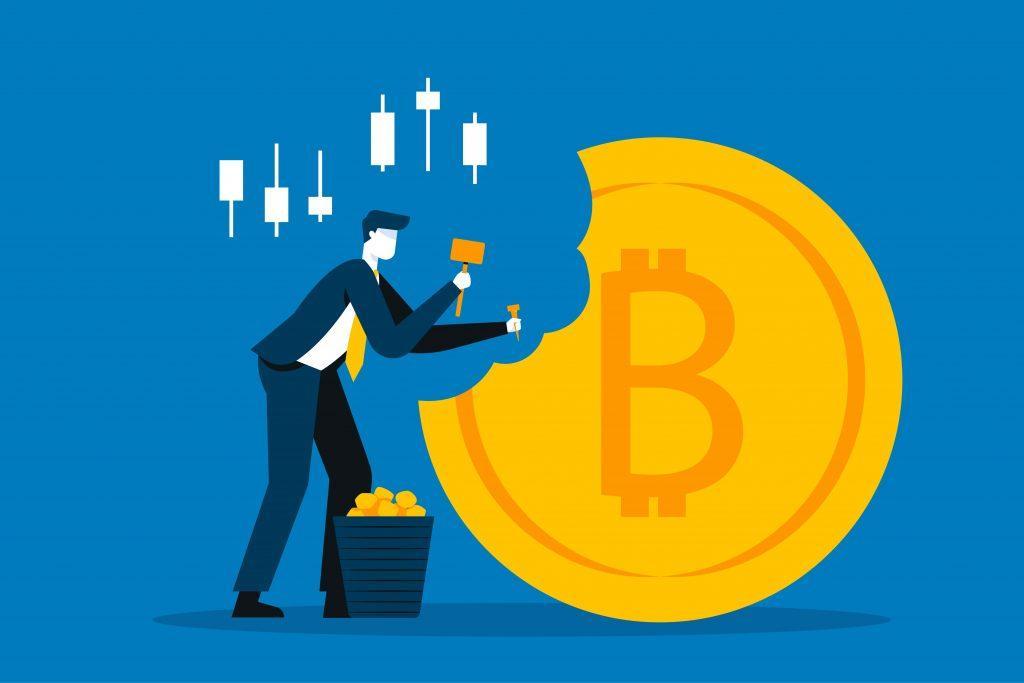As people become more independent, the demand for diversification of investment rises. As a result, investors and traders are looking for new opportunities for profits. The latest and most profitable segment is the cryptocurrency industry. The digital coins enabled with crypto smart contracts are gaining increasing traction daily.
While there is a dense air of uncertainty in crypto transactions, smart contract instill some security into the division. The smart contracts blockchain network is expected to grow at a staggering rate of 24.2%, per a detailed report by GlobalNewsWire. The secure execution contracts facilitate and simplify transactions in the blockchain network.
Experts explicitly state smart contract cryptos demystify trade between anonymous and identified parties. The contracts are a modernized move up from the traditional agreements and scale down the costs and time taken by transactions. Being completely automated, they also add a sense of credibility and authenticity to the network.
What is a smart contract Simple explanation?
If we wish to have Smart contracts explained perfectly, they can be referred to as an automated agreement in the form of a computer program that executes after certain conditions are met. They are computer codes on the blockchain network to simplify and authorize crypto transactions.
This program is a direct denotation as the network’s authority of transactions between buyers and sellers. The contract is written into the lines of codes and is programmed to execute when certain predetermined conditions are met. Transactions made under such contracts are irreversible and highly transparent.
The technology repurposes the traditional old contract system and eliminates the need for intermediaries and unnecessary paperwork. Smart contracts make blockchain transactions trustworthy even without a central authority’s supervision.
Smart Contracts as an add-on
While smart contracts are sufficient for authorizing transactions, there are instances when these computerized codes are used as add-ons. Most of the usage is in a sole execution mode, but it finds other uses.
In some instances, smart contracts complement the traditional contracts already in place. Their addition, in this case, is used for implementing and executing specific provisions that could not be recorded in the text-based contract. Smart contracts are also added to increase the transaction’s security, permanence, and certainty.
What are smart contracts with examples?
Smart contracts act as simple lines of code based on the if-then logic. The codes are executed as and when certain conditions are met. The technology has widespread usage in the blockchain network and forms the base of many crypto transactions.
Solidity code examples showcase the lines of codes inside a smart contract execution and describe precisely how it is triggered. Using smart contract codes of escrow transactions is the most suitable way to define Solidity by example. These codes are repeated across different levels in the blockchain network and written directly into Solidity’s framework.
What do smart contracts do?
This transformational execution technology has the potential to induce drastic changes in business development and industry advancements. The code is highly applicable in various scenarios and finds use under different circumstances.
Since these smart contracts come with significant levels of autonomy, they actively promote the adoption of decentralized technology. The independent nature combined with unrivaled security and transparency makes the contracts the drivers of a significant digital transformation.
While even industries like music and art can effectively utilize smart contracts, here are the more common uses:
Voting System
The lines of code are directly recorded in the blockchain network and written into secure programming languages. As a result, the transactions are entirely trackable and free from manipulation. Combining these features makes smart contracts apt for strengthening the voting system.
Automating the voting system would imply less time and effort required by the voters. It would raise voter turnover, encouraging participants to vote comfortably online.
Insurance claims
Claiming insurance is a tedious task and involves a ton of paperwork. The entire process can take months; most customers still need to receive the total amount. Automated administration saves both time and effort and benefits both parties.
Smart contracts streamline the claiming procedure by triggering the claim if and when the predetermined event occurs. For example, in car insurance, your claim will be triggered whenever damage occurs to your car. The blockchain network would then have specific records and details of the incident to authorize the claim.
Financial Services
Financial reports and books use smart contracts for the accurate and secure recording of data. The new technology revolutionizes the financial industry in several ways, from transactions to reporting. Smart contracts make the segment more precise and systemized than manual inputs.
Transactions made with underlying smart contracts are recorded permanently in the blockchain network. The data is simple to access and interpret and eliminates the need for additional documents for every transaction. High levels of security prevent hacks and the stealing of sensitive data.
Supply Chain
In the traditional, laborious system, supply chains suffer from a lack of scalability and efficiency. The manual supply chain requires heaps of paperwork and documents for processing. A significant amount of time and money is lost in the tedious supply chain framework.
Smart contract code examples are proof that they can minimize this issue. The code’s work adapts to the blockchain network and removes risks of default. The method becomes more secure with the automation of supply chain transactions. Smart contracts offer quick authorization and save organizations from a lot of paperwork.
How do smart contracts make money?

The revolutionary lines of code are used for financial services and making money. Moving with blockchain technology, smart contracts are widely used for asset trading, such as derivatives and bonds. Smart contracts operate on a programming platform embedded into a blockchain network.
A combination of such automated contracts makes money for decentralized exchanges. A series of smart contracts form a decentralized system without a governing body. Moreover, the bundle of contracts facilitates the working of complicated actions via the same structure. These dApps and exchanges add immense utility to smart contracts. Such exchanges have a smart contract cryptocurrency list for trades.
Do all cryptos have a smart contract?
Being decentralized and open-source, a smart contract is open to access by anyone in the blockchain network. Any engineer or enthusiast can work to launch their smart contract into the blockchain. The smart contract codes are transparent and publicly verifiable. People can understand code flow in a smart contract and form it independently.
However, the Ethereum blockchain is the most prominent smart contract platform. Cryptocurrencies operating under the Ethereum network work under a smart contract. Other blockchain networks like EOS, Polkadot, Tron smart contract, and DAO smart contract exist. Second-generation cryptocurrencies are most active in adopting smart contracts.
Which Crypto has the most smart contracts?
Crypto in Ethereum blockchain is home to the highest number of smart contracts. The second-generation blockchain network surpasses Binance as per the number of contracts operating under it. Reports suggest that ETH holds about 65.7% of the total value of these contracts.
Ethereum’s influence and dominance in the space have considerably fallen from the level of 90%. Introducing native networks like Tron smart contracts and Binancesmartchains has negatively impacted Ethereum’s market share. However, the giant remains the highest holder of smart contracts, with almost 44 million deployed in its network.
Competitors to the network are expected to catch up in the absence of improvements in Ethereum’s field. Solana, for instance, is the fastest-growing network with smart contracts. The cryptocurrency can handle 50,000 transactions every second using the Proof of History algorithm.
However, experts believe that the advent of NFT smart contracts will prove to be a proof of work fork in Ethereum’s journey in space. While it may not last long-term, the fork can add to Ethereum’s market share.
Conclusion
Analysts believe that the cryptocurrency industry and blockchain technology are still under development. There will be advancements in space that our current technology cannot comprehend. Thus, interpreting the proper use of smart contracts in the current world is undermining its essence.
Smart contracts have developed ahead of time and are expected to revolutionize the business world. The independence, security, and transparency it adds to the network have the potential to reshape our present and drive us into the future.





